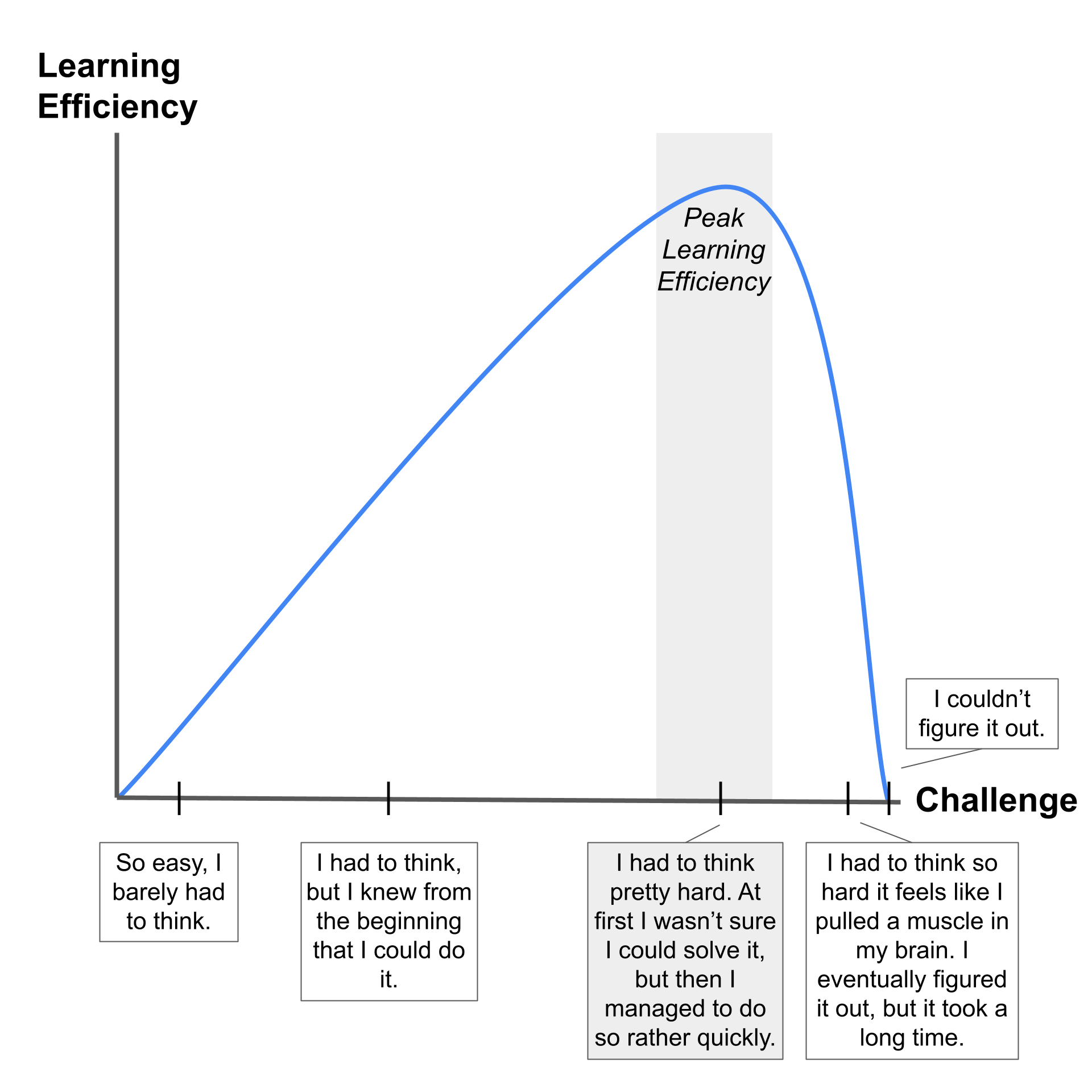What People Think Maximum-Efficiency Learning Should Feel Like, vs What it Actually Feels Like
When you're developing skills at peak efficiency, you are maximizing the difficulty of your training tasks subject to the constraint that you end up successfully overcoming those difficulties in a timely manner.
Want to get notified about new posts? Join the mailing list and follow on X/Twitter.
There is sometimes a disconnect between what students think maximum-efficiency learning should feel like, and what it actually feels like.
It’s common to think that maximum-efficiency learning should feel maximally scaffolded, perfectly smooth/easy the whole way through. While this is more true than not, it misses an important nuance: maximum-efficiency learning should feel just-enough scaffolded that the learning tasks are challenging yet still achievable.
This is more obvious in the context of athletics: maximum-efficiency training involves pushing athletes to the brink of their capabilities. At the beginning of a training session, an athlete undergoing maximal-efficiency training will probably not be confident in their ability to successfully perform the training tasks, but they will end up doing so.

Confidence
When you’re developing skills at peak efficiency, you are maximizing the difficulty of your training tasks subject to the constraint that you end up successfully overcoming those difficulties in a timely manner.
A noteworthy corollary of this is that you are also minimizing your confidence in your ability to complete the training tasks (again subject to the constraint that you end up successfully completing them in a timely manner).
In that view, confidence is more of a “hindsight” thing than an “in-the-moment” thing. If you feel confident while engaging in maximum-efficiency learning, it’s not because the task in front of you seems easy relative to your abilities, but because you’ve been in situations before where tasks felt challenging relative to your abilities but you’ve always managed to come out successful.
Pep Talks
This perspective on confidence occasionally showed up when I was teaching the most advanced high school math/CS sequence in the USA. Sometimes the kids would get a bit intimidated by the coding tasks I was asking them to complete – not because they tried and failed to complete the tasks, but because the tasks just looked very challenging from the outset.
So I’d sometimes have to give a little pep talk beforehand. Something like this:
- "I know this looks intimidating, but you know I've never asked you to do something that you're unable to do if you really try. And I know it's hard to believe just looking at the task, but this kind of stuff will feel easy 6 months from now. But this is clearly true because, remember task XYZ that we did 6 months ago, that you were all worried about? It took you a week to complete it at the time, but you all got through it, and what if I asked you to do it again? Yeah, that's right, it would only take you an hour or two now. Easy. It might not feel like it in the moment, but in accordance with history, the same thing is going to happen with task XYZ in front of you."
This is one of the “soft” psychological things that good coaches will do: reminding students that things may feel challenging in the moment, but that’s what it feels like to engage in maximum-efficiency practice. The efficiency is contained within the challenge.
Want to get notified about new posts? Join the mailing list and follow on X/Twitter.